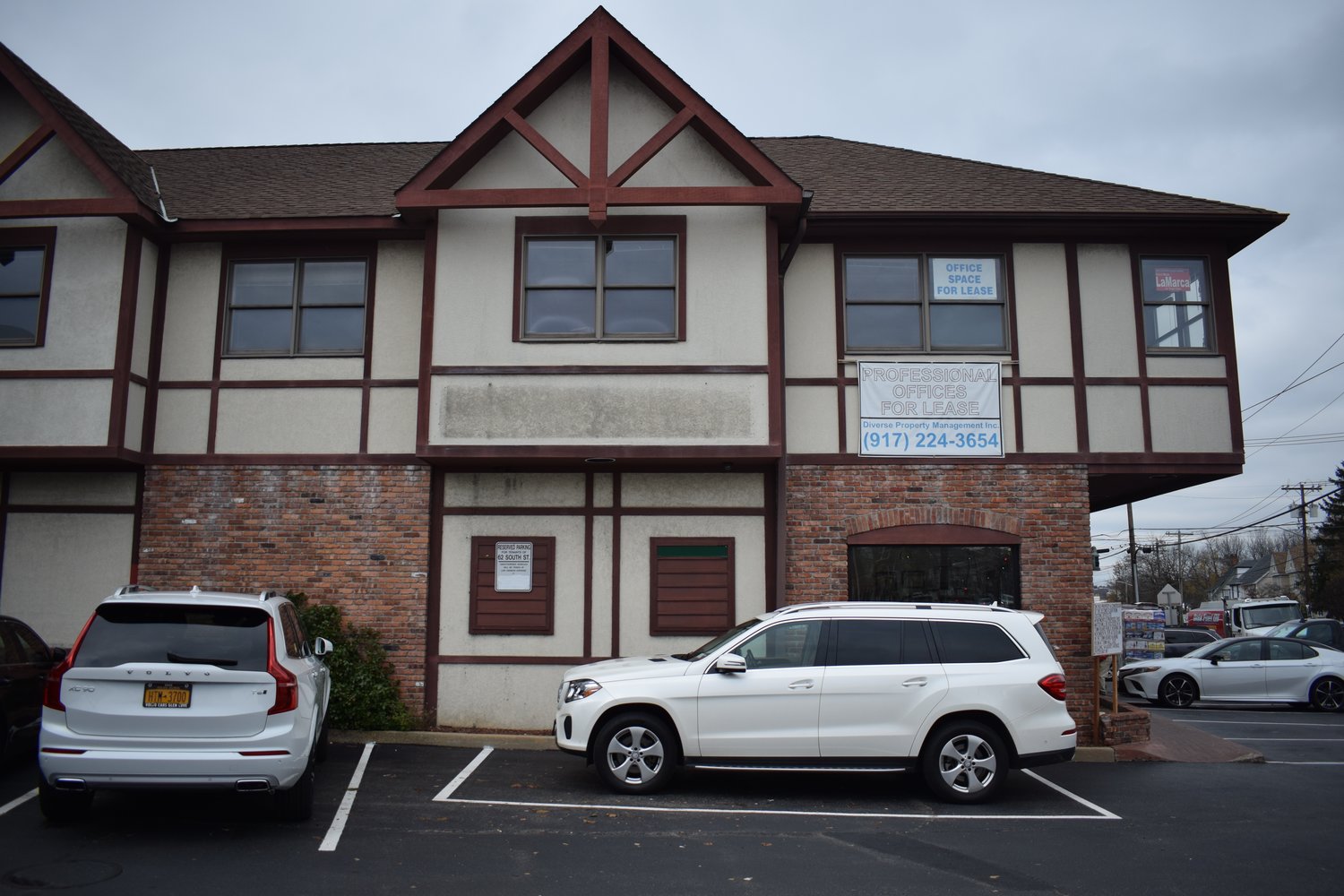A request for apartments in Oyster Bay
Building owner says he seeks to end downtown vacancy
For the past three years, the second floor at 62 South St. in Oyster Bay has remained vacant, despite the property owner’s efforts to rent out the available office space. Now Hamid Nazif, who owns the building, is hoping to convert the space to residential apartments. He requested that the Town of Oyster Bay approve a special-use permit for him to do so at a Town Board meeting on Nov. 19. The conversion requires a special permit, because the property is designated for business, not residential, use.
Attorney Anthony LaMarca, who represented Nazif at the meeting, said that there would be eight apartments. Six would be one-bedroom units, one a studio and the other a two-bedroom apartment. Nazif has spent years trying to rent the space to a business, LaMarca said, and the previous owner had also tried to attract businesses there for years, to no avail.
“While [Nazif] has had trouble trying to fill those office spaces, there does appear to be a need for these types of apartments,” LaMarca said, “and there is evidence of community support for this.”
Attorney Robert Brusca, a member of the Oyster Bay Civic Association, and Meredith Maus, executive director of the Oyster Bay Main Street Association, spoke in support of the application. They both vouched for Nazif’s willingness to work with the community and said that adding apartments to the downtown area would help local businesses.
Maus said that the Main Street Association had worked with the town to help attract businesses to the downtown area over the past few years, which in turn helped create a record-low number of storefront vacancies in the area.
“So, getting these apartments would be a positive impact for the downtown community,” said Brusca, who is also a member of the Oyster Bay-East Norwich Chamber of Commerce.
LaMarca said that there were already eight buildings nearby with apartments above restaurants, similar to what Nazif wants. The only other change to the building included in his application would be a reduction in the required number of parking spaces. LaMarca said that while the current office use requires the property to have 30 parking spaces under town code, residential use would only require eight spaces, much to Maus’s delight.
“The switchover would be less of an impact on existing parking,” Maus said, “and it . . . gets more spending money downtown.”
Although they agreed that more residential units would be good for the area, several Town Board members were worried about possible quality-of-life issues, particularly garbage and overcrowding. Councilman Lou Imbroto, who chairs the town’s Quality of Life Task Force, said that residents of some apartments downtown that are above businesses tend to throw their trash into the town’s public garbage bins, which is not what they are for.
Councilman Thomas Hand said he was also worried about an open complaint filed against Nazif’s building for overflowing garbage at its dumpster. Elizabeth Maccarone, the town’s planning and development commissioner, said the complaint was from 2017, and had been rectified. She explained that the case was still open in order for the town to continue to monitor the situation. She added that the apartments would be subject to annual inspections from the town’s multiple-residence inspector in order to avoid overcrowding.
“We’re actually revamping [inspections] now in order to address overcrowding,” Maccarone said. The inspections are limited to apartments and other multiple-residence dwellings, and cannot take place in single-family homes.
“We’re very concerned about this issue of overcrowding,” Imbroto added, “and we’re monitoring it everywhere.”
Nazif is willing to comply with the town’s inspections, LaMarca said, and would also monitor the amount of trash the proposed residences would produce in order to schedule garbage pickups. Maccarone said that the building would definitely need more pickups than are currently scheduled.
The Town Board unanimously voted to close the public hearing over the case, and will vote on whether to grant the special permit at a future meeting.






